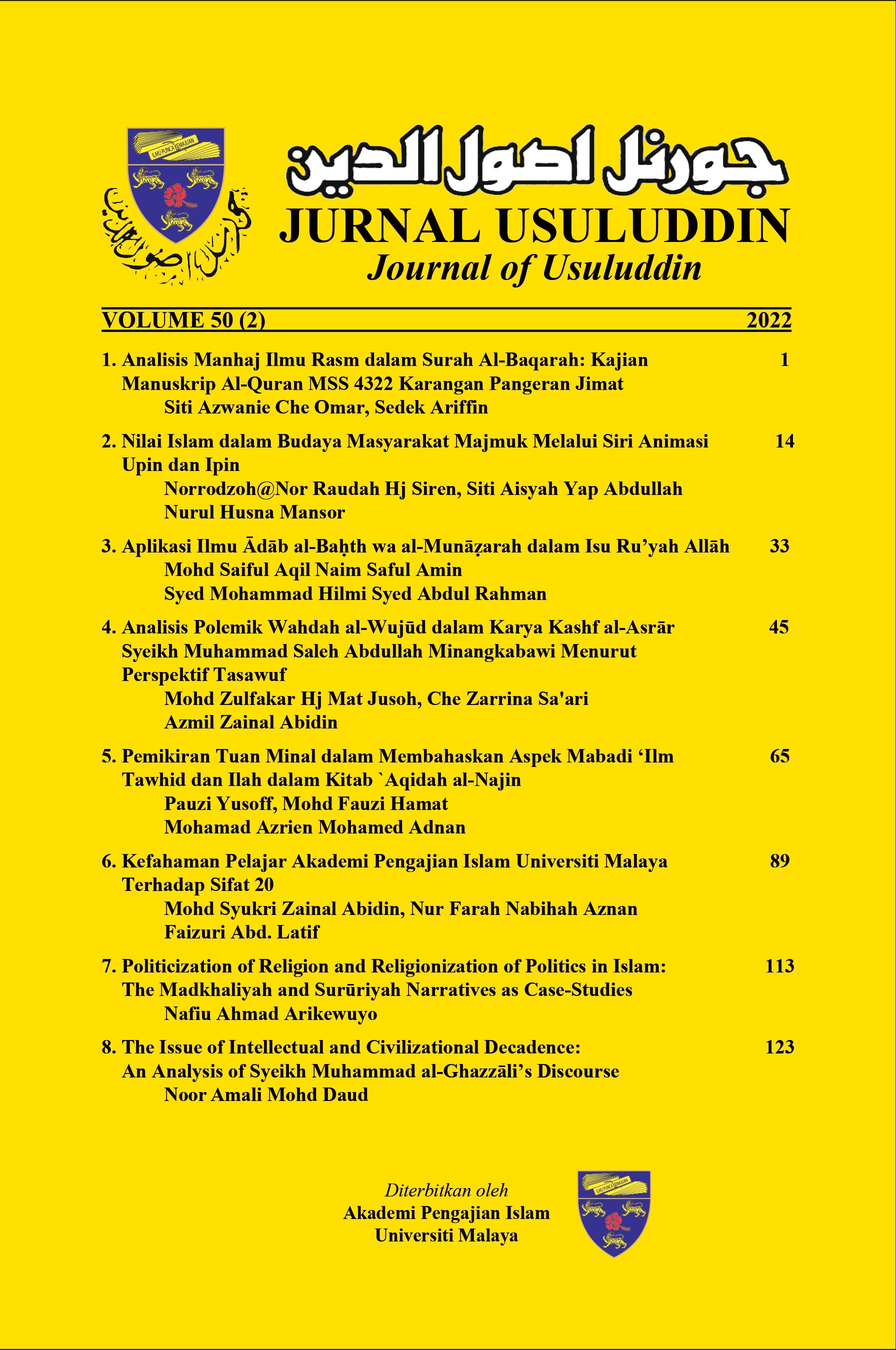Analisis Polemik Wahdah al-Wujūd dalam Karya Kashf al-Asrār Syeikh Muhammad Saleh Abdullah Minangkabawi Menurut Perspektif Tasawuf
An Analysis of Wahdah al-Wujūd Polemics in Kashf al-Asrār’s Syeikh Muhammad Saleh Abdullah Minangkabawi According to Tasawwuf Perspectives
DOI:
https://doi.org/10.22452/usuluddin.vol50no2.4Abstract
Wahdah al-wujūd is one of the doctrines that has been discussed and debated by sufis in tasawwuf teachings. Nowadays, several fatwas from certain Islamic State Councils in Malaysia have issued to ban this doctrine from being spread due to ittihād and hulūl issues (pantheisme). This article highlights wahdah al-wujūd in Kashf al-Asrār Syeikh Muhammad Saleh Abdullah Minangkabawi according to the tasawwuf perspectives. This article aims to examine the textual in Kashf al-Asrār in dealing with fatwa and critisism. This article uses qualitative research method through documentary contents to identify wahdah al-wujūd doctrines and analysis method for analyzing the textuals in Kashf al-Asrār Syeikh Muhammad Saleh Abdullah Minangkabawi. The study eventually finds that Syeikh Muhammad Saleh Abdullah Minangkabawi refused the idea of ittihād and hulūl in his doctrine of tauhid, by using metaphore in discussing his ideas of tauhid, and the fatwa needs to be improved to address positive perspectives on Kashf al-Asrār’s teachings of tauhid.











